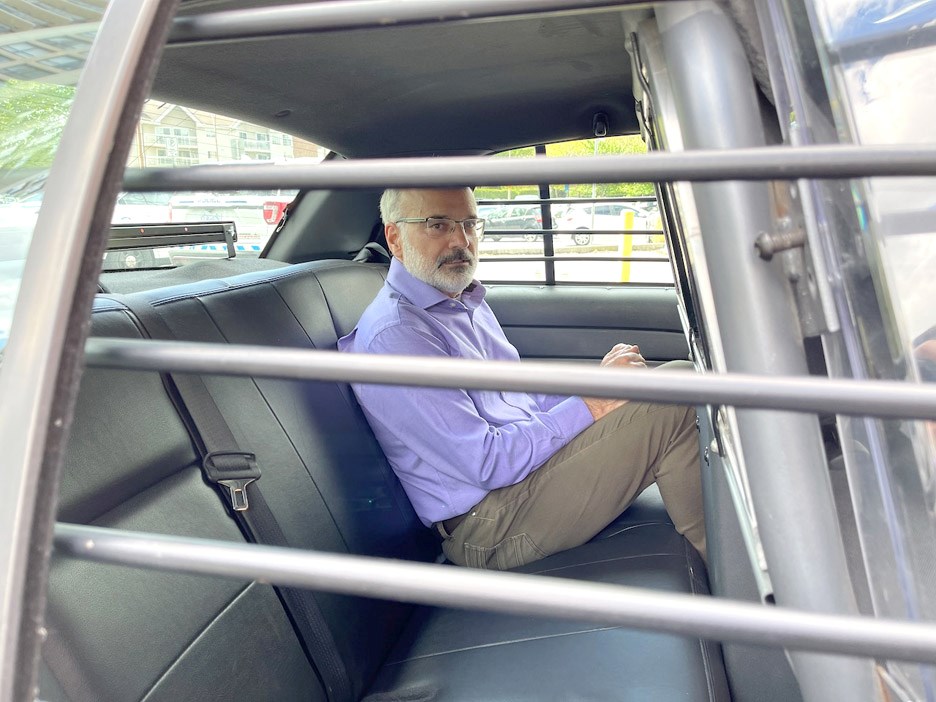The following column was submitted to Tri-City News from Richard Stewart, mayor of the City of Coquitlam.
Two armed, uniformed police officers on our front porch was unsettling. It was 2015, and we had called for an ambulance for our daughter; but in B.C., a 911 call for a mental health emergency is directed to local police, something I’ve been arguing against for years.
Nonetheless, this was a crisis and we let them in.
Our daughter had been quite public about her journey through mental illness, a journey that had given her family many challenges and new perspectives. But this felt surreal, the first time police had visited our home for one of us. Our daughter had barricaded herself in her room, in unimaginable anxiety, uncontrollable panic, and one of the police officers started communicating with her – at first through the closed door, then eventually face-to-face. He was skilled at de-escalation, and he eventually succeeded in calming her sufficiently to get her to the living room.
Through the front window, I noticed an ambulance about 80 metres up the street, parked and waiting. We were presented with options. They could invoke Section 28 of the Mental Health Act, which would empower police to apprehend our daughter and transport her to hospital in the backseat of a police car.
Or, if she calmed down sufficiently so she could credibly/reliably consent, she could go to hospital in an ambulance. She chose the ambulance, at which point the medical professionals (paramedics) were called in from up the street. Up until that point, this health-care emergency was completely in the hands of police. And most police will agree that it shouldn’t be that way.
For several years now, Coquitlam City Council has pressed Fraser Health Authority (FHA) for a mental health car program, a call that has been echoed by other communities and advocates.
Similar to Surrey’s Car 67 or Vancouver’s Car 87, this model of mental health response includes a psychiatric nurse along with a police officer (with fewer of the tactical elements of uniform, or even plain-clothes). It’s not a perfect solution, but most police consider it to be much better than the current reality where the “first responder” to a mental health call is not a medical professional and has no medical training. Unfortunately, FHA hasn’t been able to dedicate resources for the medical half of the team – the psych nurse; last week, FHA’s CEO Dr. Victoria Lee responded to Coquitlam’s latest request with “At this time [FHA is] unable to commit to supporting this program in Coquitlam.”
Several weeks ago FHA rejected a similar request from Burnaby.
Policing is a local government responsibility, while health care is provincial jurisdiction. That said, if the current police-led model achieved good health outcomes, cities would embrace it. But, of course, most recognize that it isn’t the best solution; that uniformed and armed police – even though well-trained in de-escalation – are at a tremendous disadvantage in trying to calm a citizen suffering an anxiety attack or a psychotic episode.
As well, uniformed police response to health emergencies only adds to the criminalization of mental illness. The societal view that the mentally ill are dangerous or violent – a view reinforced by Hollywood – adds to the stigma of mental illness; an armed police response doesn’t help.
This incident occurred in 2015, the first of several times where police were reluctantly part of our daughter's health care, not because of any crime, but because the system puts them in that position.
I’ve since heard from family members across B.C. about similar incidents. A mother described how her nine-year-old child, diagnosed with autism, ADHD and ODD, had to be held down by police officers, handcuffed, and strapped to a stretcher, an incident that traumatized both child and family.
Or a 15-year-old girl who was “arrested” at school, handcuffed and placed in a police car for transport to hospital; she never went back to school. Or a 30-year-old who didn’t return to work after well-meaning colleagues called an ambulance during his anxiety attack, which resulted in his apprehension by police at the workplace.
Police agree that it’s time we abandon the model where the police are the first responders for mental health crises. It’s time that our response to illness or injury – whether the health condition is physical or mental – is primarily a medical response, with police support when needed. It’s time we stop using the backseat of a police car as an ambulance; we wouldn’t do that with any other health emergency. It’s time we stop asking mental health to take a back seat.
Following successful treatment, our daughter was able to complete her studies at Douglas College; she graduated a year ago with a degree in psychiatric nursing, and now works as a psych nurse.
Her younger sister completed the paramedic program at the Justice Institute, including training on mental health crisis response, and now works as a paramedic at BCAS.



